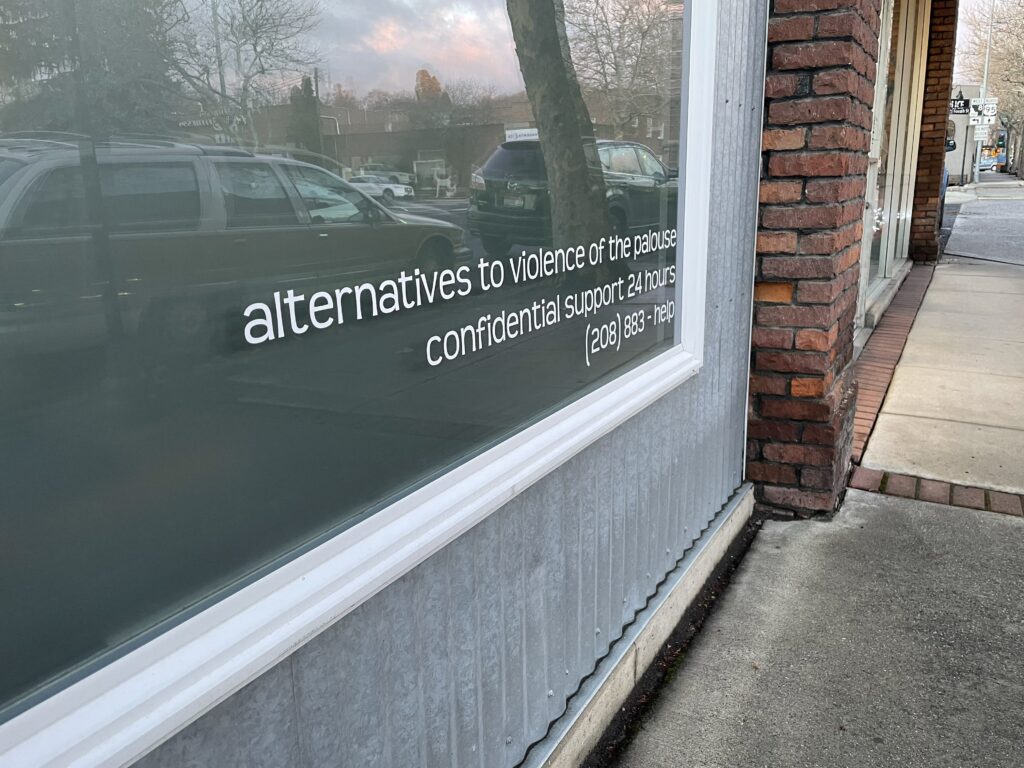For more than 40 years, Alternatives to Violence of the Palouse (ATVP) has been a beam of hope for survivors of domestic abuse.
ATVP is a non-profit shelter that offers various services, including an emergency shelter located at 407 South Washington St. Their office is open 8:30 a.m. to 5 p.m. Monday through Friday. They provide legal advocacy, support groups for domestic violence and sexual assault, and emotional support for those navigating the aftermath of domestic violence.
ATVP is committed to confidentiality, collaborations with local law enforcement and healthcare providers, and ensuring survivors find not just refuge, but empowerment. Though their efforts have created a big impact on the community financial constraints create challenges for non-profit organizations, reminding the Palouse of the importance a community plays in supporting victims of domestic violence.
Kateisha Moreno, the program manager at ATVP explains their different services and how they support victims of domestic violence. They have a legal advocate who helps victims navigate the legal system, for example, if someone wants assistance seeking a restraining order. They have other advocates to also help with emotional support, housing, and employment. If there is a situation ATVP cannot help with, they will refer them to someone in the area who can fill those means.
Moreno stresses that ATVP takes confidentiality very seriously. She says a lot of people come in looking for help and want to respect their wishes.
“Oftentimes, when you are a victim of violence your own autonomy has been taken away from you, and we want to give folks their autonomy back to decide what happens with their information,” Moreno said.
However, ATVP are mandated reporters. The only time they may disclose anyone’s information is if someone mentions any harm to children, or vulnerable adults or if they have intentions to carry out suicidal thoughts.
ATVP engages in collaborative efforts through its Coordinated Community Response Team (CCR) meets with law enforcement, prosecutors, hospitals, and more to ensure they’re meeting the needs of survivors and discusses any issues that need to be addressed.
For example, Moreno explains the logistics of their Address Confidentiality Program that allows survivors to hide or change physical addresses on any legal paperwork. So, on any paperwork, their address would appear as a P.O. box.
“What that does is if their abusive partner were to look them up, they would not be able to find their physical home address. It would show up as a P.O. box in the state capitol,” Moreno said.
When people use the Address Confidentiality Program or other similar programs, ATVP uses these CCR teams to remind law enforcement, prosecutors, and healthcare workers that it’s a legitimate program and to take the victim’s safety into account.
One of the biggest issues non-profits, like ATVP, face is funding. ATVP is funded by the state and federal government, so funding varies depending on what grants are received. They’re actively ramping up fundraising efforts to secure funds to sustain the shelter, the staff, and the survivors.
The government didn’t always provide funds to nonprofits serving victims of violence. The Violence Against Women Act in 1994 where state legislature allowed the government to give those funds or organizations. The law allows shelters like ATVP to educate others on domestic violence and even have an emergency shelter. Moreno says the law allowed many social services to support survivors, which is why it takes strong community efforts to aid nonprofit shelters. What massively supports ATVP is its fundraisers, which allow the community to provide food, feminine hygiene products, and other basic living materials that go a long way for domestic violence shelters. ATVP also always accepts donations in Washington and Idaho.
One of the biggest ways to help support survivors is to be aware of domestic violence and understand the depth of the issue, not just to survivors themselves, but on a community level. If we’re able to properly support victims, it allows them to start contributing to and positively impacting their community.
ATVP has a free and confidential 24/7 volunteer hotline. If you are experiencing domestic violence or if you are curious about how to support a friend or family member who may be experiencing domestic violence call (208)883-HELP and ATVP can talk you through it.
Alyssa Johnson can be reached at [email protected]

Diane Hanson
Are there any items that are needed for donation?